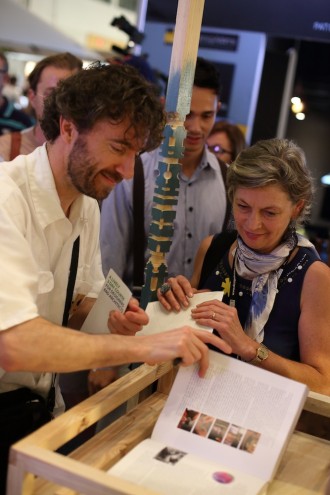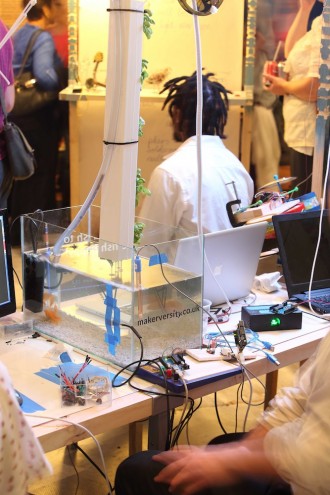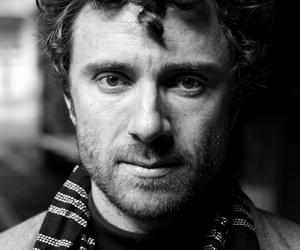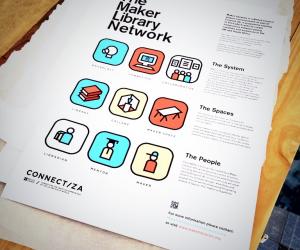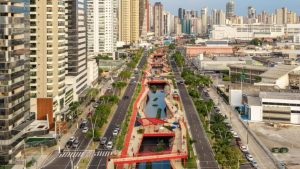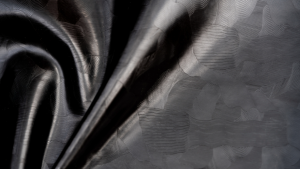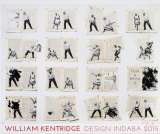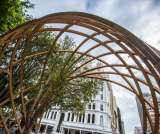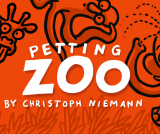The Maker Library Network is a British Council project commissioned as part of ConnectZA, a major new series of cultural exchanges between the UK and South Africa. Conceived by Daniel Charny, Maker Libraries are new spaces for collaboration that aims to create connections between young creatives and audiences across the two countries.
How it works: Creatives apply to become librarians for a Maker Library. Once they are accepted the librarian receives a starter kit which includes an open source design kit and materials budget to build a library, a core set of books, a growing resource of other open designs and access to a panel of mentors via an online platform.
Each library contains three key elements; a reading space, a showcase space and and make-space, that allow users and librarians to share skills and ideas both in person and over a digital platform connecting to other libraries.
The project was officially launch at the Events Arena stage with Daniel Charny and designer Thomas Heatherwick. Speaking about his own creative process Heatherwick said "the world of building and the mode of thinking has become disconnected from the act of making" and that it had become too cerebral." He was encouraged by the emphasis the Maker Library places on the act of making and that more designers should be "greedy to make things".
The network was launch with five libraries. The first was the library set up by Thingking, a designer-maker consultancy on the Design Indaba Expo floor and a second Cape Town-based library was set up by Heath Nash at the Guild exhibition. Stuart Falconer and Gunnar Groves-Raines run a mobile Maker Library from a converted Gunnar’s caravan in GRAS, Edinburgh. MAKLab, Scotland’s first open access digital fabrication studio, also set up a library as well as the Makerversity in the heart of London.
Maker Librarians hosted an interactive programme of making events and seminars reflecting their own interests and skills. They have also designed the Maker Library installation and curated the work on display in the gallery.
Charny's hope for the project is that "it will result in surprising crossovers and collaborations; that it becomes a real peer-to-peer learning space".
Applications to become a Maker Librarian for this round are open until 11 April. You can apply here.



